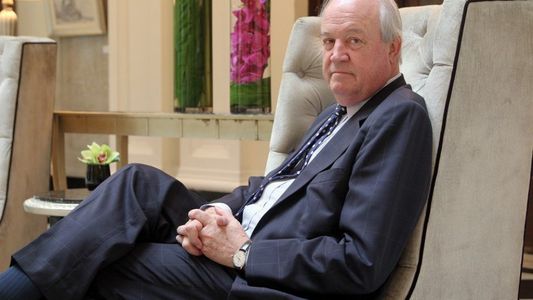Amb. Jorge Heine on ‘In Pursuit of Development’ Podcast

Ambassador Jorge Heine, former research professor at the Pardee School of Global Studies and Chilean ambassador to China, India, and South Africa, joined Dan Banik from the In Pursuit of Development podcast on November 1, 2025. They discussed Heine’s new book, The Non-Aligned World: Striking Out in an Era of Great Power Competition (2025), and Banik introduces “Active Non-Alignment” by clarifying, “this is not neutrality, or disengagement, but strategic flexibility. Playing the field, so to speak, to expand diplomatic options, attract investment, and strengthen autonomy.”
Heine reflected on his time serving as ambassador and feeling “destined” for China, India, and South Africa. His experience as the first ambassador to President Mandela, which deeply influenced his appreciation of the global south. Here, he was able to participate in the 1998 NAM XII Summit dedicated to non-alignment and his close observance of this movement influenced his life’s work. While the early days non-alignment movement in the 60’s had great impacts on countries of the global south, Heine and his collaborators now work to update its key concepts to address the new realities of the 21st century with what they call “Active Non-Alignment.” The current global competition between the United States and China have set the stage for countries to take intentional and fruitful decisions, allowing them to focus on their individual, national needs rather than be limited by committing to taking either side. Heine adds that today, South Africa claims Active Non-Alignment as their official foreign policy doctrine.
The global south, Heine remarks, is not a geographic concept but a geopolitical or geohistorical concept. It’s countries have a shared history of global indigence, and have not felt respected or involved in global discussions on economics of politics. He credits its rise in influence on several factors, first being the Russian invasion of Ukraine, where large countries in Africa, Asia, and Latin America did not side with NATO or Washington’s positions and instead chose neutrality. Heine explains that while these countries condemned the invasion as a violation of international law, they did not see it as a unique war, themselves having gone through many wars over the years without global aid or support. Secondly, the recent expansion of the BRICS from 5 members to 10 gives a broader platform for issues pertaining to the global south. Finally, Heine credits the war on Gaza as an event that both made clear the loyalty European countries only hold for themselves and breaking down the belief that the United States is a protector of universal human rights.
In the book, Heine and his collaborators note that the global competition between Washington and Beijing differs greatly from the previous competition between the United States’ and the Soviet Union. Additionally, the economies of the countries of the global south have grown, allowing their independence from relying on the World Bank or either of these powers. Heine summarizes the argument for countries who choose Active Non-Alignment, “we put our own interests front-and-center. It is a big mistake, once you side with either of these powers, you lose your leverage and you’ve said ‘I give up, I’m going to do whatever you tell me.’ You can’t negotiate much.”
Heine said on the contrary approach of countries disengaging with these superpowers all-together, “I believe very strongly that even if leaders feel for, ideologically or otherwise, compelled to try to choose sides… the structure of the entire national system will not allow it.” He used Argentina as an example, where President Milei’s strong anti-China platform was short-lived and only a few months later, after being elected, praised China. Heine credits this dramatic shift to Argentina’s high foreign debt and economic dependance on China, whose economy is now one of the largest in the world and is a great manufacturing power. Heine goes on to say that even if leaders wanted to break off relations to these superpowers, they couldn’t, so countries should try and make the most of these leveraging powers to their benefit.
To listen to the full interview, click here.
A former research professor at the Frederick S. Pardee School of Global Studies, Jorge Heine is a diplomat, international relations scholar, and lawyer. He has served as an ambassador of Chile to China, India, and South Africa. Heine has written over fifteen books, including The Non-Aligned World: Striking Out in an Era of Great Power Competition (2025), which provides insights on how the Global South can navigate the changing diplomatic landscape amid the U.S.-China rivalry.